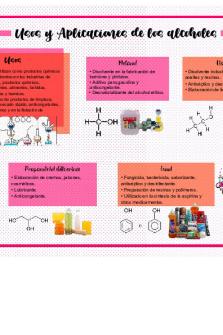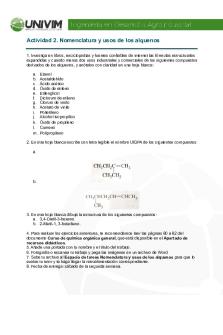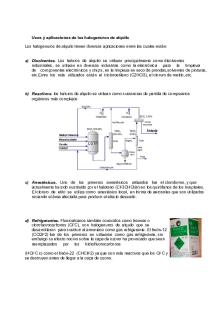Grupo-5-Permission - Usos y ejemplos de los modales de autorización en ingles: May, Could, Can, Do PDF

| Title | Grupo-5-Permission - Usos y ejemplos de los modales de autorización en ingles: May, Could, Can, Do |
|---|---|
| Course | Ingles Tecnico Turno 01a Ciclo 5 |
| Institution | Universidad Nacional del Callao |
| Pages | 21 |
| File Size | 1.7 MB |
| File Type | |
| Total Downloads | 56 |
| Total Views | 171 |
Summary
Usos y ejemplos de los modales de autorización en ingles: May, Could, Can, Do you mind if…?...
Description
"Año de la lucha contra la corrupción e impunidad"
UNIVERSIDAD NACIONAL DEL CALLAO FACULTAD DE INGENIERIA PESQUERA Y DE ALIMENTOS
ESCUELA PROFESIONAL DE INGENIERIA DE ALIMENTOS
TEMA: Permission: May, Could, Can, Do you mind if…? CURSO: Ingles Técnico PROFESOR: MANUEL ALBERTO MANRIQUE NUGENT
INTEGRANTES:
Alegría Paredes Rodrigo Nicolás Huachuhuillca Bazán Mariluz Mendoza Gutiérrez Luz Elena Samaniego Hernández Diana Rivera Ñacari Aldair Velásquez Alfaro Flor
2019-A LIMA –PERU
Contenido PERMISSION: MAY.................................................................................................................3 PERMISSION: CAN AND CAN NOT...............................................................................................5 PERMISSION: COULD............................................................................................................8 PERMISSION: DO YOU MIND IF........................................................................................10 QUESTIONS AND ANSWERS.......................................................................................................14 THE FOOD ENGINEER.........................................................................................................17 Healthy Eating..........................................................................................................................18 UNSCRAMBLE THE WORDS TO WRITE SENTENCES AND QUESTIONS................18
PERMISSION: MAY MODAL VERBS MAY
Affirmative (+) form Modal verb + Subject Complement I You He She may… It We You They
USE Possible and probable actions in the future; permissions and possible conditions. Acciones posibles y probables en el futuro; permisos y posibles condiciones. Negative (-) form Modal verb + Subject Complement I You He She may not… It We You They
Question (?) form Modal Subject + verb Complement? I…? You…? He…? She…? May It…? We…? You…? They…?
Affirmative (+) form Forma afirmativa (+)
It may be possible that the results obtained from the real gas laboratory practice present an error due to the bad use of the decanting pear. Es posible que los resultados obtenidos de las prácticas de laboratorio de gas real presenten un error debido al mal uso de la pera decantadora.
It may possible that the pineapple that was used has not been properly chopped, but this does not affect the laboratory practice enzymatic hydrolysis Es posible que la piña que se usó no se haya picado adecuadamente, pero esto no afecta la práctica de laboratorio de hidrólisis enzimática.
Página | 1
Negative (-) form Forma negativa (-)
You may not have a good titration because the sample inside the flask did not move properly. Es posible que no tenga una buena valoración porque la muestra dentro del matraz no se movió correctamente.
It may not have been a good filtration of the liquefied pineapple with yeast in the laboratory. Puede que no se haya realizado un buen filtrado de la piña licuada con levadura en el laboratorio.
Question (?) form Forma de pregunta (?)
May we use the laboratory incubator? ¿Podemos usar la incubadora de laboratorio? Yes, you may Si puedes
May we weigh the samples after 24 hours of incubation? ¿Podemos pesar las muestras después de 24 horas de incubación? Yes, you may Si puedes
Página | 2
PERMISSION: CAN AND CAN NOT The verb 'Can' belongs to the modal verbs and is located before the main verb in infinitive. El verbo 'Can' pertenece a los verbos modales y se ubica antes del verbo principal en infinitivo.
AFFIRMATIVE: I can take the temperature of the food. Yo puedo tomar la temperatura del alimento.
She can go buy the raw material for nectar. Ella puede ir a comprar la materia prima para el néctar.
Página | 3
We can perform a microbiological analysis on honey. Nosotros podemos realizar un análisis microbiológico en la miel de abeja.
INTERROGATIVE Can you pass me the thermometer? Puedes pasarme el termómetro?
Can she wear her boots? ¿Ella puede llevar sus botas?
Página | 4
Can you calibrate the balance to weigh the sample? ¿Puedes calibrar la balanza para pesar la muestra?
NEGATIVE You cannot smoke in the chemistry lab. No puedes fumar en el laboratorio de química.
She cannot solve the English course exercises. Ella no puede resolver los ejercicios del curso de inglés.
Página | 5
PERMISSION: COULD Definition: The "Could", is the last form of the verb "Can", and is used as an auxiliary to express a skill that was possessed in a time before the one that is passing. El “Could”, es la forma pasada del verbo “Can”, y es utilizado como auxiliar para expresar una habilidad que se poseía en un tiempo anterior al que está transcurriendo Reglas: Like all modal verb, "Could" must precede the main verb, which will be the base form of the verb in infinitive.
Como todo verbo modal, “Could” debe anteceder al verbo principal, que será la forma base del verbo en infinitivo There are 3 possible types of sentences:
Affirmative Negative Interrogative
Existe 3 tipos posibles de oraciones:
Afirmativo Negativo Interrogativa
Use of the verb "Could"/ Uso del verbo “Could” Type of prayer / Tipo de oracion
Structure / Estructura
Affirmative / Afirmativa
Pronombre/Sujeto + Could +Forma Base de Verbo Principal + Complemento. Pronombre/Sujeto + Couldn´t +Forma Base de Verbo Principal + Complemento. Could + Pronombre/Sujeto + Forma Base de Verbo Principal + Complemento.
Negative / Negativa Interrogative / Interrogativa
Página | 6
For example: Affirmative In the microbiology laboratory the analytical washing for the materials could be applied. En el laboratorio de microbiología se podía aplicar el lavado analítico para los materiales.
Negative Some students could not use the reactants correctly without the guidance of their teacher. Algunos alumnos no podían utilizar correctamente los reactivos sin la guía de su profesor
Interrogative What samples could be used for the determination of total sugars? ¿Qué muestras se podía utilizar para la determinación de azucares totales?
Página | 7
PERMISSION: DO YOU MIND IF This asked words it’s
phrase is used when we need something and another person in educated form, in other an expression to ask for permission.
CASES:
When I use “Do you mind if “, I ask permission for to do something , When I use “Do you mind if ”I perform the action
Esta frase se usa cuando necesitamos algo y le pedimos a otra persona de forma educada, en otras palabras, es una expresión para pedir permiso. CASOS:
Cuando uso “¿Te importa sí…?”, Pido permiso para hacer algo Cuando uso ¿Te importa si…? Yo realizo la acción
ESTRUCTURE: Do you mind if I (subject) + verb (in present) + complement For example:
¿Do you mind if I measure the pH of the meat? ¿Te importa si mido el pH de la carne?
¿Do you mind if I put the water to boil? ¿Te importa si pongo a hervir el agua?
Página | 8
¿Do you mind if I compare the appearance of the meats? ¿Te importa si comparo la apariencia de las carnes?
¿Do you mind if I do the egg experiment? ¿Te importa si hago el experimento del huevo?
HOW TO ANSWERS THESE QUESTIONS? A way to answer these questions is with denial in case the other person doesn´t have any problem that I perform the action
La forma correcta de responder estas preguntas es con la denegación en caso de que la otra persona no tenga ningún problema que yo realice la acción No problem, go ahead do it No hay problema , adelante hazlo No, do it please No , hazlo por favor Another way to answer is with affirmation in case the person does not agree but it would be a rude way to answer Página | 9
Otra forma de responder es con la afirmación en caso de que la persona no esté de acuerdo.pero seria una manera grosera de responder Yes, don´t do it Sí, no lo hagas Yes, I don´t want you to do it Sí, no quiero que lo hagas Yes, leave that please Si, deja eso por favor IMPORTANT NOTE: When we want to express that another person performs an action, we will use ¿WOULD YOU MIND….? NOTA IMPORTANTE: cuando queremos expresar que otra persona realiza una acción, usaremos ¿TE IMPORTARIA…?
ESTRUCTURE: Would you (subject) mind + verb (ING) + complement
For example:
Would you mind doing the brix degree measurement? ¿Te importaría realizar la medición de grados Brix?
?
Página | 10
Would you mind taking samples of the sugar solution bottle? Te importaría tomar muestras del frasco de solución azucarada?
sample in incubation? stras en incubación?
Página | 11
QUESTIONS AND ANSWERS Preguntas y respuestas
Can I do the milk microbiological analysis? Puedo hacer el análisis microbiológico de la leche? Not yet, we have to wait for Nicolas. Todavía, tenemos que esperar a Nicolás.
Do you mind if I record the Healthy Eating conference? Te importa si grabo la conferencia de Alimentación Saludable? Not at all. De ningún modo.
Página | 12
Do you mind if I correct your lab notes? Te importa si corrijo tus apuntes de laboratorio? Actually, I do. Just be careful. En realidad, sí me importa. Hazlo con cuidado.
Could you weigh the crisol for the laboratory test? Podrías pesar el crisol para la prueba de laboratorio? Yes, I can do that. Sí, puedo hacerlo.
Página | 13
Can you add CaCl2(calcium chloride) to the milk ? Se puede añadir CaCl2 a la leche?
Do you mind if I'm entering to the refrigeration area? Te importa si voy ingresando al área de refrigeración?
Página | 14
THE FOOD ENGINEER EL INGENIERO DE ALIMENTOS The food engineer can perform different functions, for example, they can perform the supervision and administration of food production plants, in the area of quality control, can also focus as researchers and other functions. According to Indeed Peru's salary information, the food engineer could earn approximately 2,500 soles per month. El ingeniero de alimentos puede realizar diferentes funciones, por ejemplo, puede realizar la supervisión y administración de plantas de producción de alimentos, en el área de control de calidad, también puede enfocarse como investigadores y otras funciones. De acuerdo con la información salarial de Indeed Perú, el ingeniero de alimentos podría ganar aproximadamente 2,500 soles por mes.
Página | 15
Healthy Eating A healthy diet can help prevent certain long-term (chronic) diseases such as heart disease, stroke and diabetes. It can also help reduce your risk of developing some types of cancer and help you maintain a healthy weight. Food may be different for certain groups of people, including pregnant women, people with certain health problems or special dietary needs.
Alimentación saludable Una dieta saludable puede ayudar a prevenir ciertas enfermedades a largo plazo (crónicas) como enfermedades cardíacas, derrames cerebrales y diabetes. También puede ayudar a reducir su riesgo de desarrollar algunos tipos de cáncer y ayudarlo a mantener un peso saludable. Los alimentos pueden ser diferentes para ciertos grupos de personas, incluidas las mujeres embarazadas, personas con ciertos problemas de salud o necesidades dietéticas especiales.
Página | 16
UNSCRAMBLE THE WORDS TO WRITE SENTENCES AND QUESTIONS 1. The/perform/can/analysis/I/of/microbiology/pepper/the I can perform the microbiological analysis of the pepper. Yo puedo realizar el análisis microbiológico de la pimienta.
.
2. Carambola/tell/what/you/is/could/the/temperature/at/me/? Could you tell me at what temperature is the carambola? ¿Podrías decirme cuál es la temperatura de la carambola?
3. Of/Inappropriate/the/sample/quality/may/picture/hygienic/a/indicate The picture may indicate inappropriate hygienic quality of a sample. La imagen puede indicar una calidad higiénica inadecuada de una muestra.
Página | 17
4. Visualize/the/not/cell/I/of/microscope/can/stomata/the/in/the I can not visualize the stomata of the cell in the microscope. Yo no puedo visualizar el estoma de la célula en el microscopio.
5. ?/dish/identify/of/you/petri/could/the/help/mushrooms/me/in/types/what/ are Could you help me identify what types of mushrooms are in the Petri dish? ¿Podrías ayudarme a identificar qué tipos de hongos hay en la placa de Petri?
Página | 18
6. Tell/milk/much/can/lactase/you/how/needs/?/me Can you tell me how much lactase milk needs? ¿Puedes decirme cuánta lactose necesita la leche?
Página | 19...
Similar Free PDFs

Verbos modales en alemán
- 2 Pages

Crucigrama LOS Buenos Modales
- 1 Pages

Aplicaciones y Usos de Matlab
- 7 Pages

Teoría de usos y gratificaciones
- 6 Pages
Popular Institutions
- Tinajero National High School - Annex
- Politeknik Caltex Riau
- Yokohama City University
- SGT University
- University of Al-Qadisiyah
- Divine Word College of Vigan
- Techniek College Rotterdam
- Universidade de Santiago
- Universiti Teknologi MARA Cawangan Johor Kampus Pasir Gudang
- Poltekkes Kemenkes Yogyakarta
- Baguio City National High School
- Colegio san marcos
- preparatoria uno
- Centro de Bachillerato Tecnológico Industrial y de Servicios No. 107
- Dalian Maritime University
- Quang Trung Secondary School
- Colegio Tecnológico en Informática
- Corporación Regional de Educación Superior
- Grupo CEDVA
- Dar Al Uloom University
- Centro de Estudios Preuniversitarios de la Universidad Nacional de Ingeniería
- 上智大学
- Aakash International School, Nuna Majara
- San Felipe Neri Catholic School
- Kang Chiao International School - New Taipei City
- Misamis Occidental National High School
- Institución Educativa Escuela Normal Juan Ladrilleros
- Kolehiyo ng Pantukan
- Batanes State College
- Instituto Continental
- Sekolah Menengah Kejuruan Kesehatan Kaltara (Tarakan)
- Colegio de La Inmaculada Concepcion - Cebu











